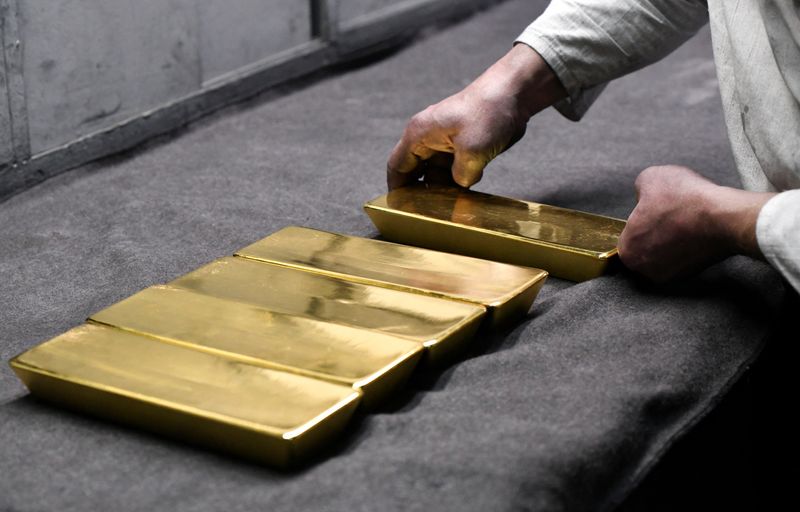Gold prices slide further as easing US-China tensions curb haven demand
Investing.com -- Europe’s attempt to unlock Russia’s €185 billion in frozen assets is emerging as a defining test of political unity—and a key driver of a structural shift in global reserve management.
Jefferies’ strategists links the debate over monetizing these reserves directly to the surge in central bank Goldgold buying that began in 2022.
The EU’s €50 billion Ukraine Facility, launched in March 2024, is almost exhausted. When Denmark, which holds the EU presidency, recently sought to expand the fund, Hungary and Slovakia rejected the proposal, aligning with Moscow’s position.
That resistance pushed policymakers to explore a controversial alternative: issuing Euroclear-backed bonds collateralized by Russia’s frozen assets, with proceeds sent to Ukraine and redemption funded by those same assets at maturity.
The plan, introduced under a majority voting system to bypass vetoes, remains divisive. Germany’s Chancellor Friedrich Merz supports the move, but both France and Belgium have opposed it.
Belgian Prime Minister Bart De Wever warned the measure “effectively amounts to confiscation,” arguing all EU members should share the risks, while President Emmanuel Macron has expressed concerns about its legality under international law.
"What is being discussed is the de facto expropriation of Russia’s foreign exchange reserves," Jefferies’ strategists said in a note.
Back to gold, Jefferies noted that the initial freezing of Russia’s foreign exchange reserves was the “trigger” for record central bank gold purchases in 2022, as countries—especially non-G7—moved to safeguard reserves from potential seizure.
According to World Gold Council (WGC) data, central banks bought 3,394 tonnes of gold between the third quarter of 2022 and the second quarter of 2025, including three consecutive years of over 1,000 tonnes each.
Recent IMF and Brazilian central bank data show Brazil’s reserves rose 12% in September alone, to 145.1 tonnes.
Jefferies said the attempt to monetize Russia’s frozen funds “creates a massive precedent,” reinforcing global skepticism about reserve security and accelerating a trend toward gold accumulation—a quiet, sustained response to the geopolitics of sanctions.
